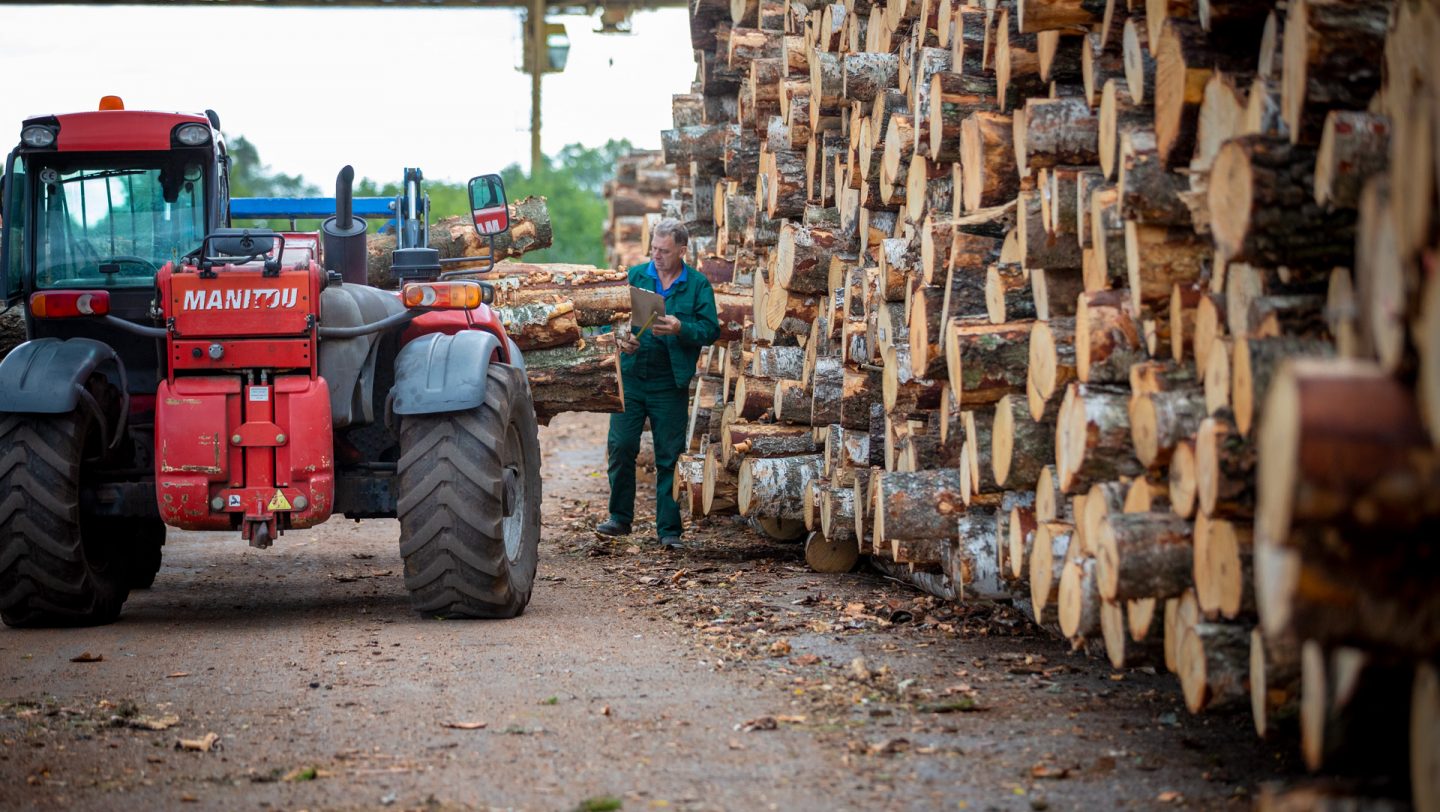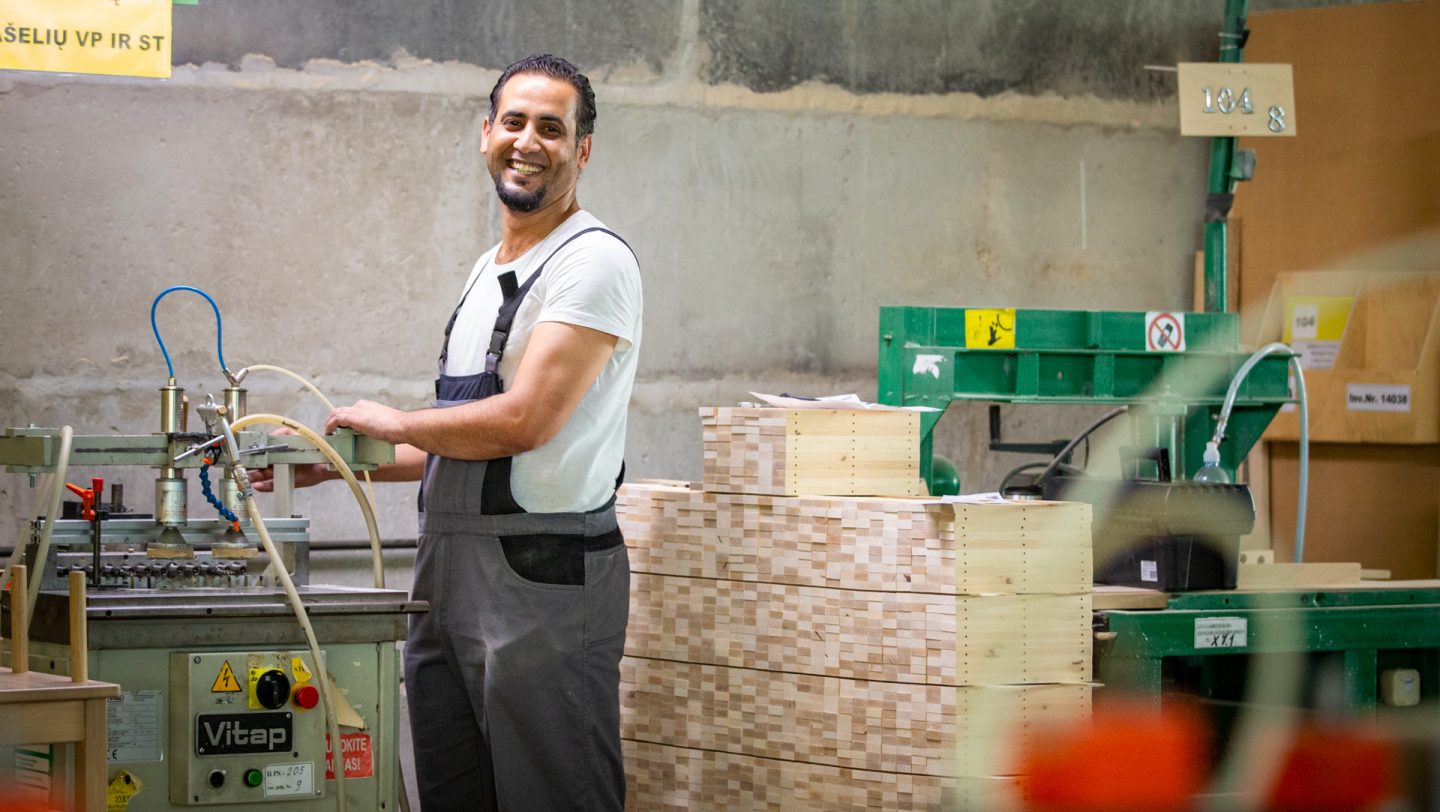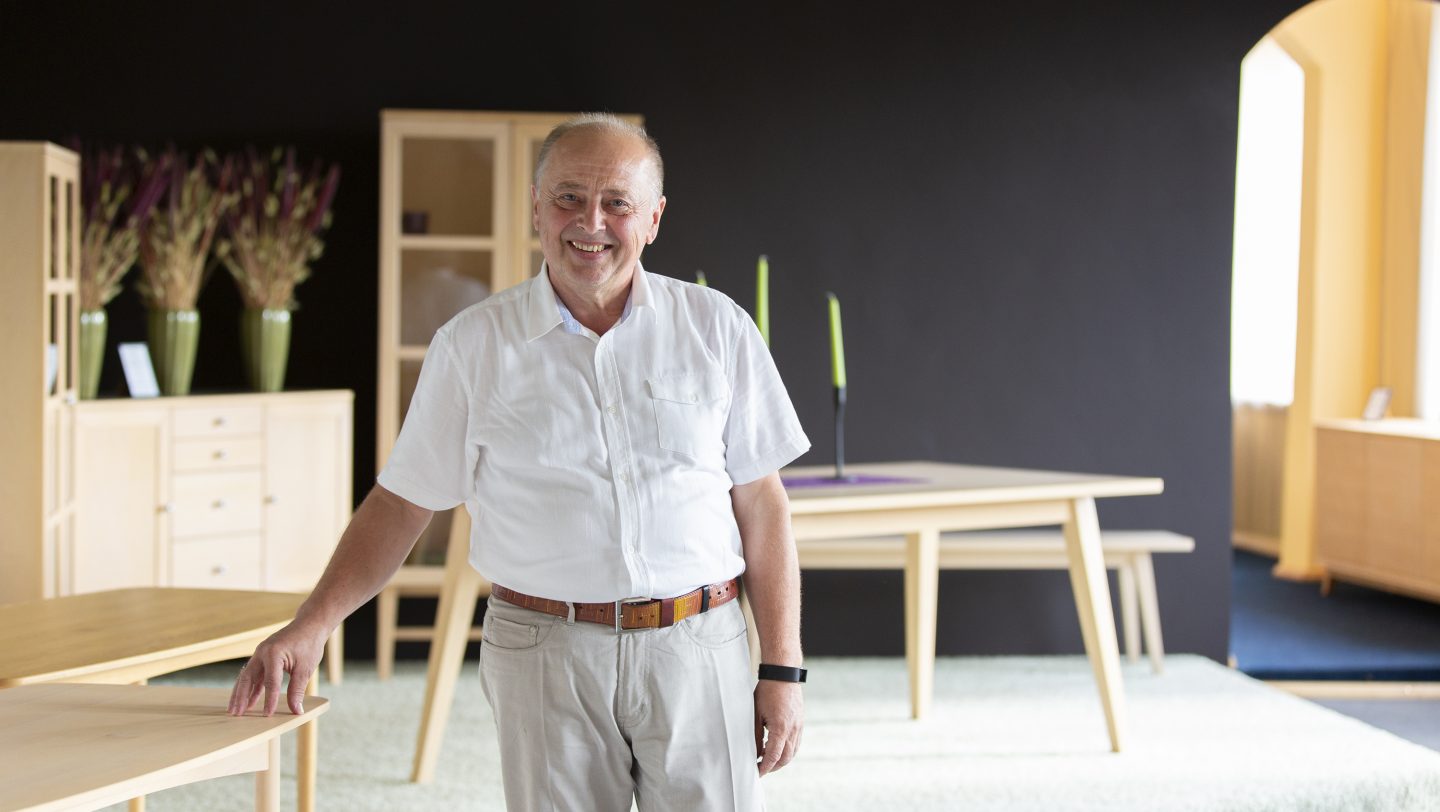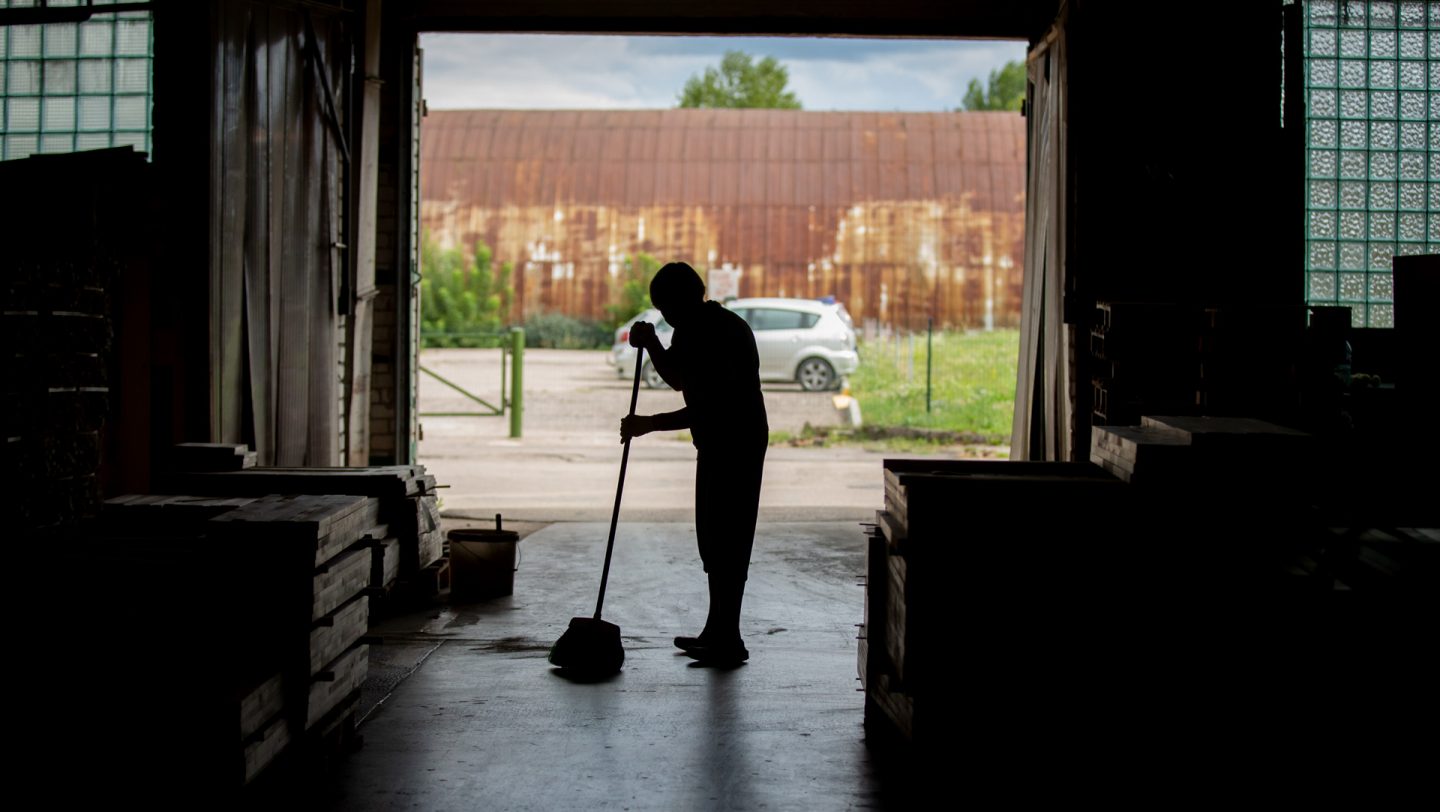Majd Mohammad is one of the 400 employees at a furniture factory in Jonava, a city in the centre of Lithuania with about 28 000 inhabitants. Majd, a 30-year-old Syrian from Homs, was relocated to Lithuania from Greece with his wife and a daughter in 2017.
Early in the morning, Majd starts his commute to work to the factory called Baldai Jums. He says his job helps him cover his basic expenses, such as rent, medical care and other services, while also giving him the opportunity to interact with locals: “In Lithuania, when you have a job, it means you are an active person, you pay your taxes and participate in daily life activities. Having a job means everything here in Lithuania”, he says.
“Refugee employees in our company have lived up to our expectations”
After fleeing the war in Syria, Majd had to cross the Mediterranean Sea with his wife and two-year-old daughter to find safety in Europe, “The boat was full of people, it was very difficult and scary, I mean…the sea…’’, Majd says. Unlike the 3,139 refugees who lost their lives in the Mediterranean in 2017, Majd and his family were lucky to reach the shore in Greece. After the Lithuanian embassy in Greece called them for an interview, Majd’s family were accepted to be relocated to Lithuania, awaiting a new life in a completely foreign country.
Baldai Jums, the furniture factory where Majd works, is the leading employer of Syrian refugees in Lithuania. They started employing refugees in 2017 and have already provided 8 refugees with jobs.
“Refugee employees in our company have lived up to our expectations”, says Alfonsas Meškauskas, the General Manager of Baldai Jums.
Alfonsas admits that he, as many employers in Lithuania, had a negative opinion about refugees, at least before meeting them in person. “The newspapers usually don’t report on how some refugees have successfully integrated and how well they are doing”, he says.
“We try to understand and to help. Because one day we might even become refugees ourselves”.
As part of the company’s pilot program, Alfonsas initially hired two Syrians. They started with simple tasks and now perform more complex operations.
The initiative has been a success, and the company has employed even more refugees from Syria. Alfonsas hopes that other companies will follow his example, as refugee employment benefits the hosting country, the business and the refugees.
“We try to understand and to help” Alfonsas says, ”it’s probably a human thing to do—when people find themselves in turmoil and seek refuge. Because one day we might even become refugees ourselves”.
For Majd, the job at Baldai Jums gave him a chance to learn a new profession and kick-start his new life in Lithuania, and he now feels like any other worker in the factory. “There is no discrimination here, and the evaluation of the workers is based on productivity and and efficiency”, he says.
As for Lithuanian weather, he is still not used to the cold winters, but he is grateful to be in a calm and safe place. Majd hopes his two children will have an easier life and a better future, as they’ll learn the language and adapt quicker to the culture. “I want to stay in Lithuania for the sake of stability for me and my family. Changing and travelling constantly is not good for the children, here they will have opportunities”, he says.
—–
In the spring of 2018, the UNHCR, the UN Refugee Agency, and the OECD, the Organisation for Economic Co-operation and Development, introduced an action plan to expand employment opportunities for refugees, as their skills and attributes represent significant economic potential. The document is a result of extensive consultations with employers and other key actors, and describes both challenges and opportunities, as well as examples of positive practices from countries around the world. The action plan also contains action checklists to facilitate refugee employment by authorities, employers and other actors in the society. Lithuania joined the OECD in July 2018 and aims to participate in the plan as well.
Share on Facebook Share on Twitter




